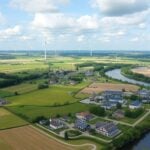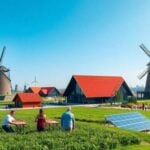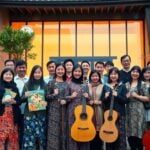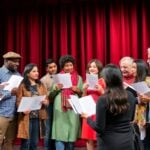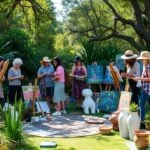In recent years, the importance of girls’ education has gained significant attention on a global scale. With numerous organizations and governments recognizing the transformative power of educating girls, the demand for effective grant proposals has surged. Writing a compelling grant proposal is not merely about securing funding; it is about articulating a vision that resonates with potential funders and demonstrates the profound impact that their investment can have on communities.
For those passionate about advancing girls’ education, mastering the art of grant proposal writing is essential. A well-crafted grant proposal serves as a bridge between the aspirations of educators and the resources needed to realize those dreams. It is an opportunity to present a clear, persuasive case for why girls’ education deserves attention and funding.
This article will explore actionable strategies and real-world examples to enhance the success of grant proposals specifically aimed at promoting girls’ education. By understanding the nuances of proposal writing, individuals and organizations can significantly increase their chances of securing the necessary support to make a difference.
Identifying the Need and Target Audience
The first step in writing a successful grant proposal is to identify the specific need that your project addresses. This involves conducting thorough research to understand the barriers that girls face in accessing education within your target community. For instance, in many developing countries, cultural norms, economic constraints, and inadequate infrastructure can hinder girls from attending school.
By gathering data and statistics that highlight these challenges, you can create a compelling case for why your project is necessary. Equally important is defining your target audience. Who are the girls you aim to support?
Are they from marginalized communities, rural areas, or urban settings? Understanding the demographics of your audience will help tailor your proposal to address their unique needs. For example, if your project focuses on girls in rural areas, you might emphasize the lack of transportation options or the need for mobile schools.
By clearly identifying both the need and the target audience, you lay a strong foundation for your grant proposal.
Crafting a Compelling Narrative
Once you have established the need and identified your audience, it’s time to craft a compelling narrative that captures the essence of your project. A strong narrative not only outlines what you plan to do but also conveys the passion and commitment behind your initiative. Start by sharing a personal story or anecdote that illustrates the challenges faced by girls in education.
This humanizes your proposal and makes it relatable to potential funders. In addition to storytelling, it’s crucial to articulate your vision clearly. What are your goals for the project?
How will it change the lives of the girls you aim to support? Use vivid language and descriptive imagery to paint a picture of success. For instance, instead of simply stating that you will provide scholarships, describe how these scholarships will empower girls to pursue their dreams, attend university, and ultimately contribute positively to their communities.
A well-told story can evoke emotions and inspire action, making it an invaluable component of your grant proposal.
Developing a Detailed Budget
A detailed budget is a critical element of any grant proposal, as it provides transparency and demonstrates fiscal responsibility. When developing your budget, break down all anticipated costs associated with your project. This includes direct costs such as materials, salaries, and transportation, as well as indirect costs like administrative expenses.
Be sure to justify each line item by explaining how it contributes to the overall success of the project. Moreover, consider including potential sources of matching funds or in-kind contributions. This not only shows that you have a comprehensive understanding of your project’s financial needs but also indicates that other stakeholders believe in its value.
For example, if local businesses are willing to donate supplies or services, highlight this collaboration in your budget section. A well-structured budget can instill confidence in funders that their investment will be managed wisely and effectively.
Establishing Measurable Goals and Outcomes
Establishing measurable goals and outcomes is essential for demonstrating the impact of your project. Funders want to know how you will assess success and what metrics you will use to evaluate progress. Start by setting SMART goals—Specific, Measurable, Achievable, Relevant, and Time-bound.
For instance, instead of stating that you want to increase school enrollment among girls, specify that you aim to raise enrollment by 20% within two years. In addition to setting goals, outline how you will track and report on these outcomes. Will you conduct surveys, interviews, or focus groups?
How often will you evaluate progress? By providing a clear plan for assessment, you reassure funders that you are committed to accountability and continuous improvement. Real-world examples can further strengthen this section; for instance, referencing successful projects that utilized similar evaluation methods can lend credibility to your approach.
Building Partnerships and Collaborations
Building partnerships and collaborations can significantly enhance the strength of your grant proposal. Funders often look favorably upon projects that demonstrate community involvement and support from various stakeholders. Identify potential partners such as local schools, non-profit organizations, government agencies, or businesses that share your vision for girls’ education.
Collaborating with established entities can provide additional resources, expertise, and credibility to your project. When outlining partnerships in your proposal, be specific about each partner’s role and contributions. For example, if a local organization will assist with outreach efforts or provide mentorship programs for girls, detail how this collaboration will enhance your project’s effectiveness.
Highlighting these partnerships not only showcases a united front but also illustrates a commitment to leveraging collective resources for greater impact.
Addressing Sustainability and Long-Term Impact
Sustainability is a critical consideration for funders who want to ensure that their investment leads to lasting change. In your grant proposal, address how you plan to sustain the project beyond the initial funding period. This could involve developing a plan for ongoing fundraising efforts, creating revenue-generating activities, or establishing partnerships with local organizations that can continue the work after funding ends.
Additionally, emphasize the long-term impact of your project on girls’ education in the community. Will it lead to increased graduation rates? Will it empower girls to become leaders in their communities?
By articulating a vision for sustainability and long-term impact, you demonstrate foresight and responsibility—qualities that funders value highly.
Reviewing and Editing the Grant Proposal
The final step in crafting a successful grant proposal is thorough reviewing and editing. A polished proposal reflects professionalism and attention to detail—qualities that funders appreciate. Begin by revisiting each section of your proposal to ensure clarity and coherence.
Are your arguments compelling? Is your narrative engaging? Seek feedback from colleagues or mentors who can provide constructive criticism.
In addition to content review, pay close attention to formatting and grammar. A well-organized proposal with no spelling or grammatical errors enhances credibility and shows respect for the funder’s time. Consider using tools like checklists or templates to ensure that all required components are included before submission.
Taking the time to review and edit can make a significant difference in how your proposal is perceived. In conclusion, writing a successful grant proposal for girls’ education requires careful planning, research, and creativity. By identifying needs, crafting compelling narratives, developing detailed budgets, establishing measurable goals, building partnerships, addressing sustainability, and thoroughly reviewing proposals, individuals can enhance their chances of securing funding.
With dedication and strategic thinking, it is possible to create impactful initiatives that empower girls through education—ultimately contributing to a brighter future for all.

